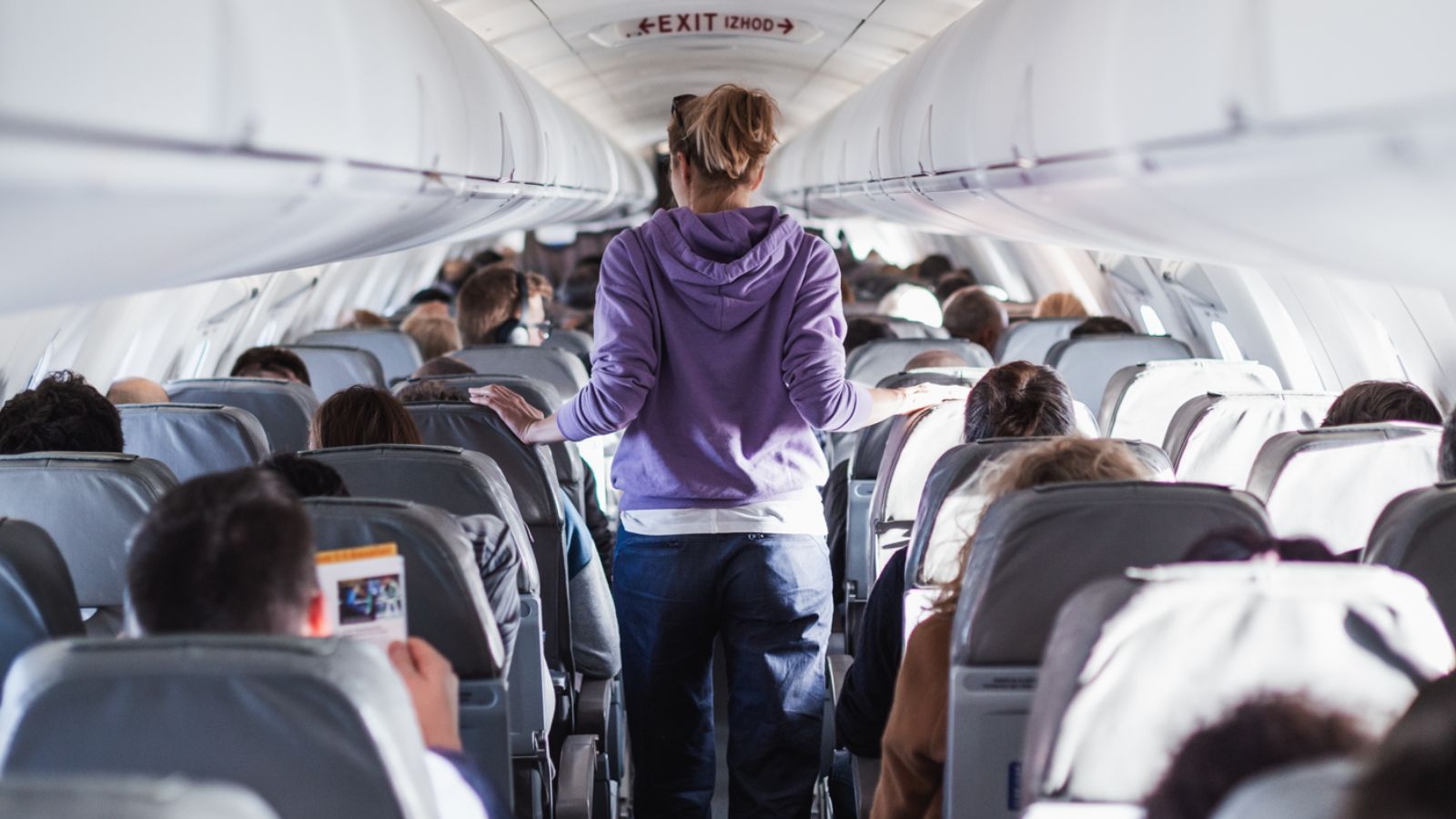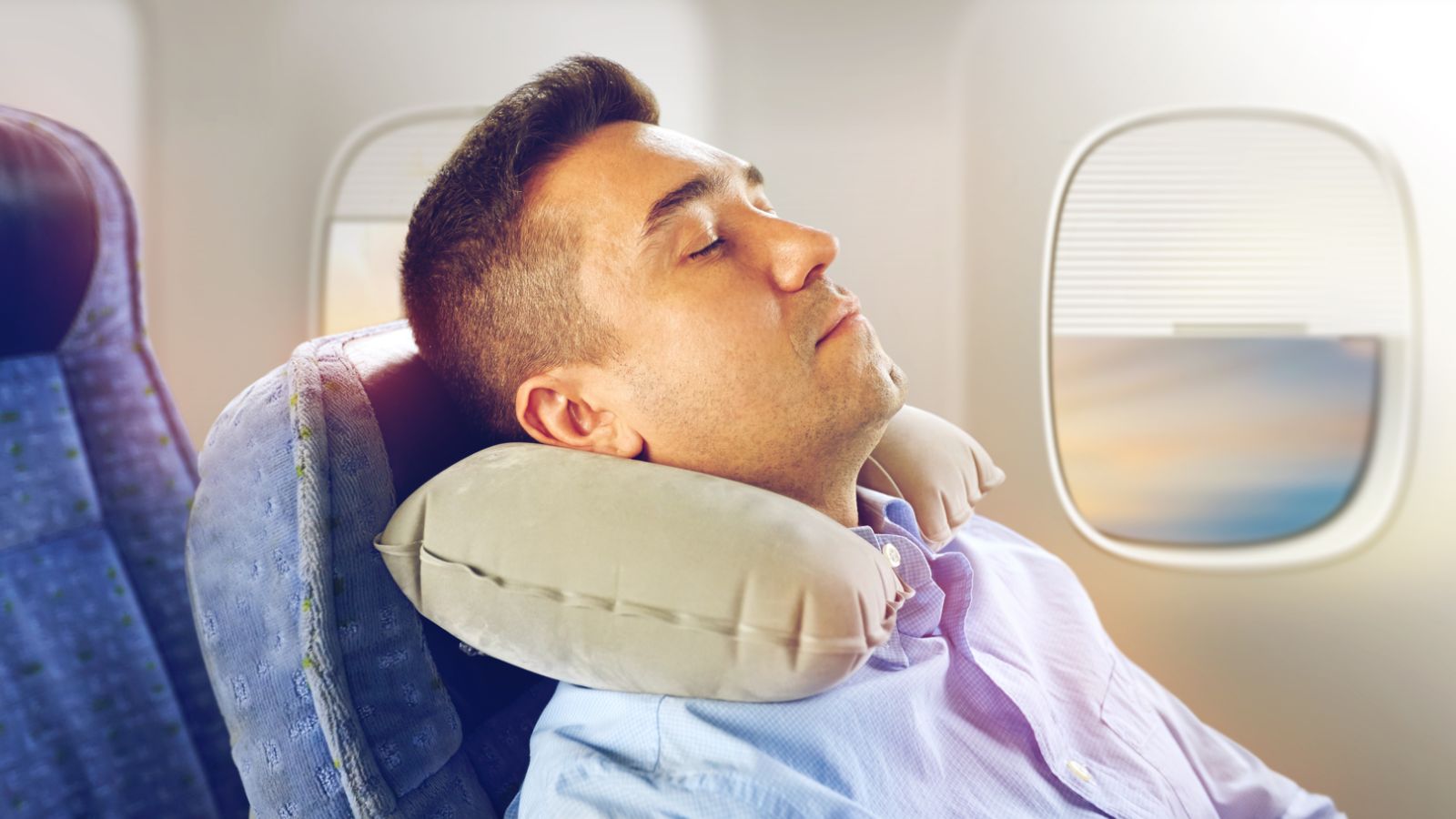One of the biggest downsides to traveling is jet lag, which can quickly put a downer on your trip. It sometimes feels like no matter how much sleep you get, you just can’t get rid of its negative effects. To help you deal with it better, here are a few tips on how to quickly overcome it.
Get Plenty of Sunlight

Another way to overcome jet lag quickly and easily is to maximize your exposure to natural light, which can help regulate your body’s internal clock. Spend time outside during daylight hours at your destination, even if you’re exhausted. Morning light is particularly effective in resetting your circadian rhythm to the local time zone.
Avoid Napping Upon Arrival

It’s going to be very tempting to have a long nap when you arrive at your destination, but that’s not wise. If you must nap, keep it short—no more than 20 minutes. Staying awake until a reasonable local bedtime will help you adjust to the new time zone more quickly, preventing you from struggling to sleep all night.
Eat Meals According to the New Time Zone

If you start eating meals according to your destination’s time zone as soon as you board the plane, you’ll be able to handle jet lag much easier. This helps your body adjust to your new schedule, especially if you focus on balanced meals and avoid heavy, rich foods that can disrupt your digestion and sleep.
Adjust Your Sleep Schedule Before Departure

No doubt, the best way to avoid jet lag altogether is to gradually alter your sleep pattern a few days before your trip, which even the NHS recommends doing. Shift your bedtime and wake-up time closer to your destination’s time zone in small increments, and by the time you’ve arrived at your destination, you’ll already be in sync with the local time zone.
Stay Hydrated

If you’re not keen on messing with your sleep schedule before you travel, make sure you drink plenty of water before, during, and after your flight. Dehydration can exacerbate jet lag symptoms, so keeping well-hydrated aids in adjusting to new time zones. Avoid alcohol and caffeine, too, as they can disrupt sleep and contribute to dehydration.
Use Sleep Aids Sparingly

It’s not a wise idea to use sleep aids excessively when you’re having trouble sleeping on the plane or adjusting to the new time zone. Melatonin supplements can be helpful, but you’ll need to consult with a healthcare professional before use, as it can come with side effects. Either way, it’s still better than prescription sleep medications, which you could quickly become dependent on.
Use an Eye Mask and Earplugs

If you’re looking to deal with jet lag by catching up with sleep during your flight, an eye mask and earplugs will do wonders for you, blocking out light and noise. This can also be useful if you discover your accommodation to be noisy or not well-darkened upon arrival.
Practice Relaxation Techniques

If you’re struggling to sleep at night upon arrival due to your circadian rhythms being messed up, try some relaxation techniques such as deep breathing, meditation, or gentle yoga. This will help your body manage stress and promote better sleep, and once you get a good night’s sleep, you’ll be one step closer to overcoming jet lag.
Wear Comfortable Clothing

Anyone who flies regularly will know that comfortable, loose-fitting clothing can make a big difference during long flights. Tight or restrictive clothing can lead to discomfort and hinder your ability to relax and sleep, thus exacerbating jet lag symptoms upon arriving at your destination.
Stay Active During the Flight

It’s always a smart idea to move around and stretch periodically during your flight, especially if you know you’ll be jetlagged upon arrival. Simple exercises like walking the aisles or stretching in your seat can improve circulation and reduce the stiffness that often accompanies long periods of sitting, making jet lag much easier to deal with.
Use the Right Travel Accessories

To help you get some top-up sleep before dealing with jet lag, travel accessories like neck pillows, travel blankets, and compression socks can be wise to bring aboard your flight. Compression socks, in particular, improve circulation and reduce the risk of swelling and deep vein thrombosis, which could keep you awake more than you realize.
Sync Your Watch Immediately

A good mental trick to minimize the disorientating effects of jet lag is to set your watch to the local time of your destination as soon as you board the plane. This mental adjustment can help you start thinking in terms of the new time zone, making it easier to adapt once you arrive.
Limit Screen Time Before Bed

Upon arriving at your destination, avoid screens an hour before your bedtime. The blue light from phones, tablets, and computers can interfere with your sleep cycle, making it difficult for you to adapt. Instead, opt for a book or other non-screen activities, helping you to wind down and get a good night’s rest.
Take Short Walks Outdoors

If you’re already dealing with jet lag, consider taking regular short walks outdoors, especially in the morning, which can help reset your internal clock. Physical activity combined with exposure to natural light is effective in adjusting your body to a new time zone, so the worst thing you could do is stay sat down indoors.
Plan Your Arrival Time Wisely

Whenever possible, it’s smart to choose flights that arrive in the early evening. This allows you to stay awake until a reasonable local bedtime and helps you acclimate to the new time zone more quickly. It will likely mean you’ll be relying on sleeping throughout your journey, but as long as you follow our other tips, that shouldn’t be too difficult.
Use Essential Oils

Lavender, eucalyptus, and other essential oils can promote relaxation and improve sleep quality, which will be very useful upon arriving at your destination with jet lag. When your new bedtime arrives, use a few drops on your pillow or in a diffuser to create a calming environment, aiding in your adjustment to the new time zone.
Maintain a Sleep-friendly Environment

On your first night in new accommodation, it’s always going to be a little difficult to get to sleep, so ensure your sleeping environment is as comfortable as possible. Use blackout curtains, keep the room cool, and minimize noise to improve sleep quality. After getting a good night’s sleep, you’ll be far more prepared to deal with jet lag.
Avoid Heavy Meals Before Bed

It’s generally a good idea to avoid heavy or rich meals close to bedtime, which can disrupt your sleep, especially when you’re jet-lagged. So, don’t be tempted to indulge in a heavy local cuisine on your first night; stick to something light and save the more indulgent options for the coming days.
Use Blue Light Glasses

While it’s a good idea to avoid screens during your flight, which will stimulate your brain with blue light and potentially worsen the effects of jet lag, many people see them as necessary during long flights. They certainly keep you from getting bored, so as an alternative, consider wearing blue light glasses, which will filter the light from your screen and reduce these stimulating effects.

